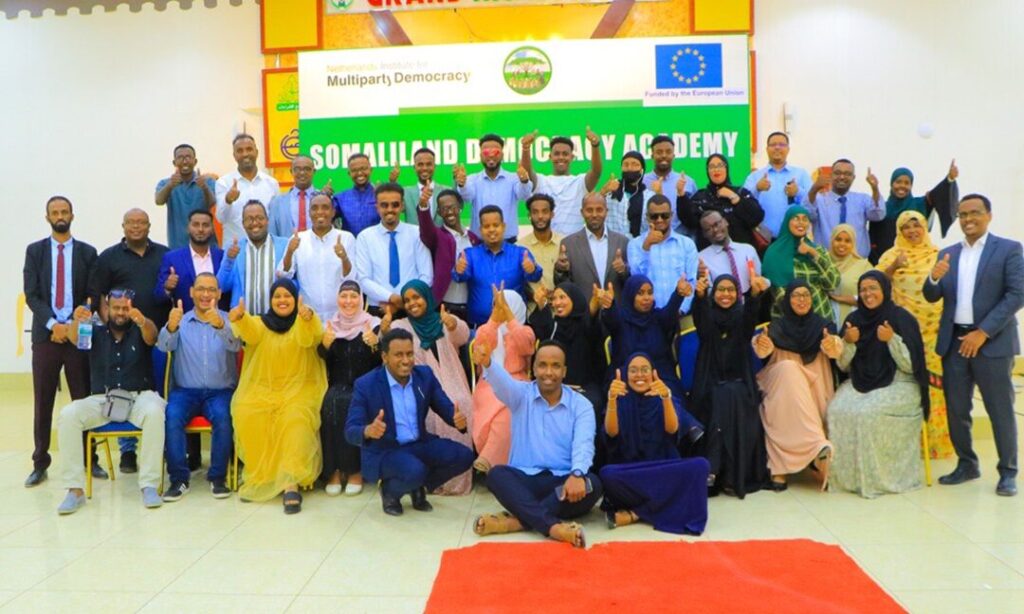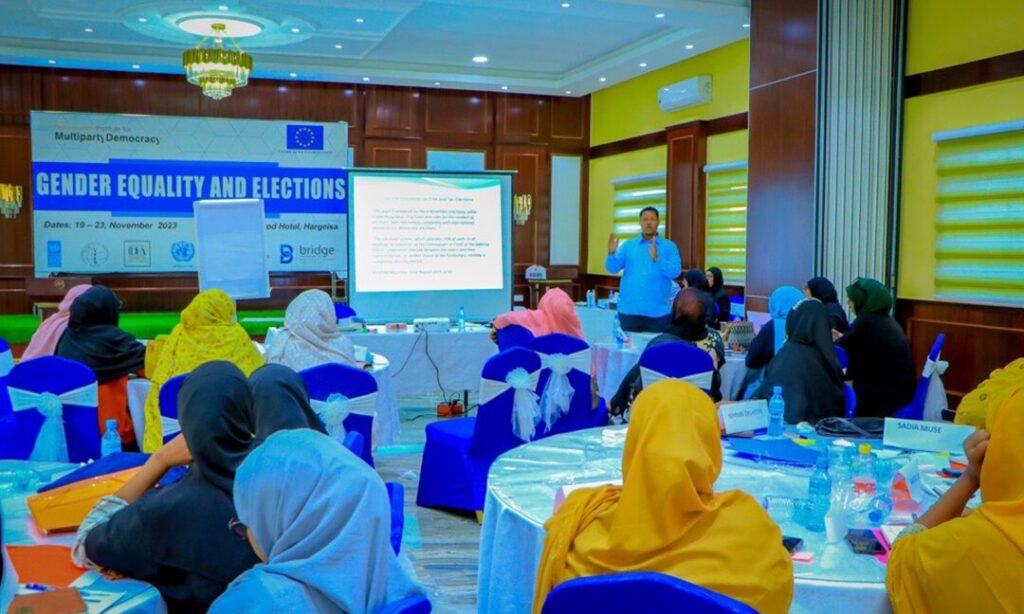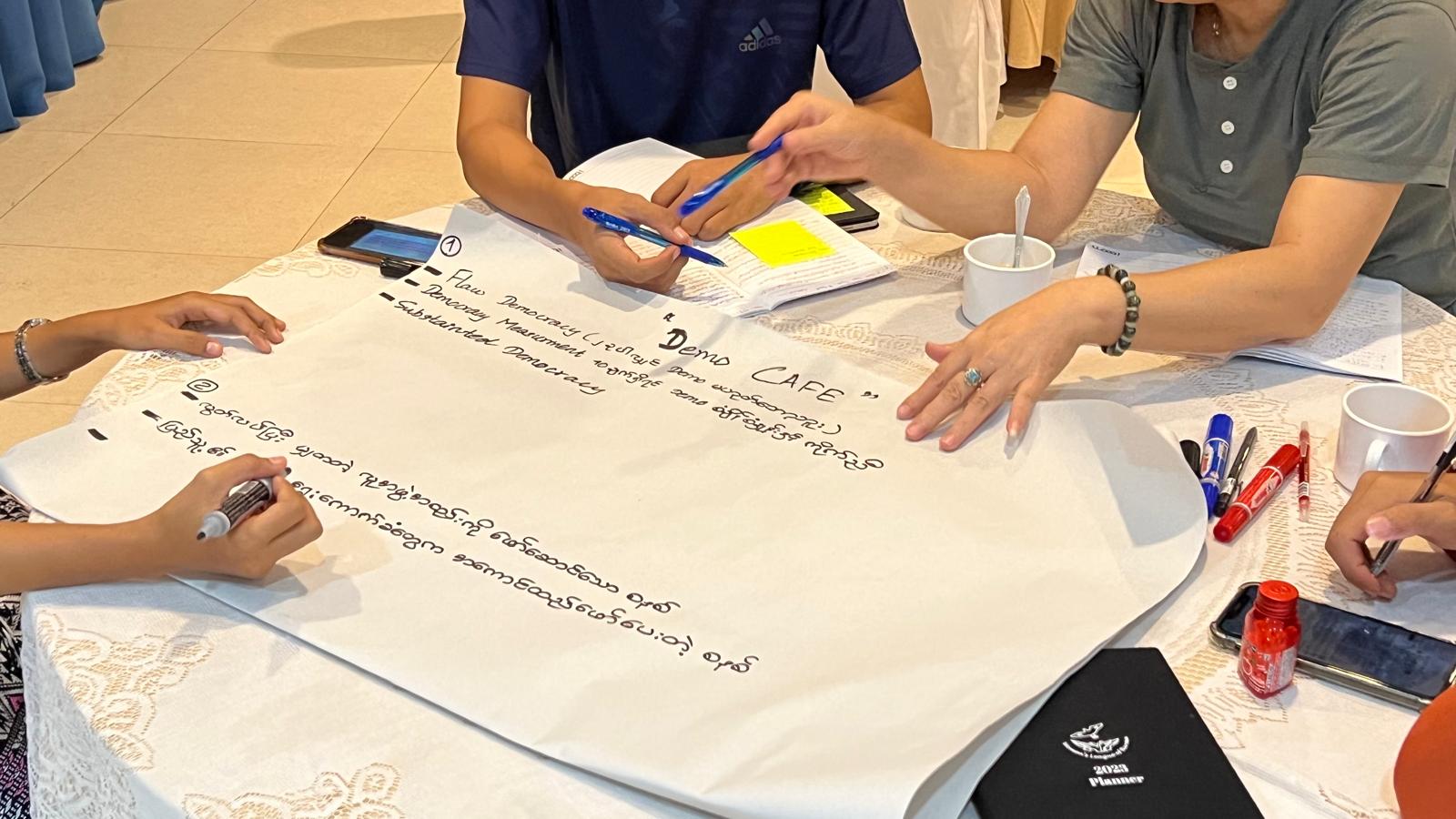Aan wadahadalno waa aan heshiino - Hablemos

Facilitating Dialogue in Somaliland
“Somaliland or generally Somalis have a culture of dialogue. There is a Somali proverb, Aan wadahadalno waa aan heshiino , literally meaning, let us talk, means let us reconcile our differences. “So, it is part of the Somali culture to talk to each other and have dialogue.” Abdijalil Tahir NIMD Somali/land Country Director – shares, “dialogue is not something new in the Somali culture, so as NIMD we play a facilitating role.”
We bring together politicians across the political spectrum. We work on democratic culture, promoting democratic values through outreach and public engagement. Somaliland, however, is steeped in tradition with the utmost reverence for its Somali culture; how is NIMD’s dialogue and democracy support work localized?
When it comes to dialogue in Somaliland – elders play a very important role.
In Somaliland, when it comes to dialogue, elders represent the conflicting parties, Abdi shares, “so if me and you had a conflict, then our elders would come together to have a discussion and dialogue about our conflict. They would interview us to first understand what the conflict pertains to, our stances or where we stand in the conflict. All so they can represent us during the dialogue meetings.
Balancing the traditional
Balancing the new energy of Somaliland’s youth with the traditional formats of operating – how does that work? How do you combine the two? I asked Abdi. He responds that “Somalis are organized in clans; Somaliland’s government was formed when the clan elders came together in 1991 following the collapse of the Somalia central government.
After the fighting ended in 1991 and once the new governance structures were established, the elders established a body called the House of Elders, locally known as Gurti. In Somaliland, they work alongside the House of Representatives, which is occupied by officials selected by the clan leaders. Even in a modern governance system, the elders still play a critical role.
In every sector of society, elders play a key role in resolving conflicts from the grassroots level to the political level.

Women in politics – going against traditions
While the elders are male, women also play a clear and growing role in Somali society; Abdi tells us, “During the civil war, a lot of men died, so some of the females became family leaders. And they are everywhere in terms of education.” He shares that “around 10 years ago, there were more boys than girls in high school or universities. Now it’s either 50-50, or sometimes even, there are more women than men in the universities. So, there are a lot of opportunities there. Especially when you see families understanding that their children are equal so that they can send both their girls and their boys to school. Then, you could see that in the future, that will change at societal and political levels.
At the political level, NIMD works on giving women interested in entering politics the right tool kit to have a voice at the table. Abdi shares that they mostly work with women through political parties and associations. “In November 2023, we conducted a 10-day gender and elections course for women leaders from the political parties and associations. This was followed by an exchange visit to Kenya, where the women also learned from Kenyan institutions how Kenyan institutions mainstream women’s political participation.”
Right now, the team are working on a new programme to supporting women in politics, working from multiple angles; “we are supporting Parliament in establishing a gender department within the House, we are also establishing a women caucus within the Parliament that can advocate for amending or drafting laws, and empowering women to run for parliamentary and local council elections in the 2026 upcoming elections.”
Looking ahead
Diversifying democratic expression and interweaving the traditional with the modern are at the forefront of NIMD Somali/land’s work. The team works with a reverence for the cultural traditions of Somaliland.
In 2022, Somaliland’s opposition political parties and the government clashed over the sequencing of elections—whether the presidential or political party elections should be held first. This dispute led to demonstrations and the loss of lives. The conflict was resolved through traditional elders in August 2023, leading to an agreement to combine both elections. This was followed by peaceful combined elections in November 2024.
We remain committed to preventing conflicts and continuing our support for reconciliation and trust-building among political actors and groups ahead of the planned 2026 parliamentary and local council elections. As always, the team will keep the dialogue alive—Aan wadahadalno waa aan heshiino (Let’s talk means let’s reconcile our differences).

